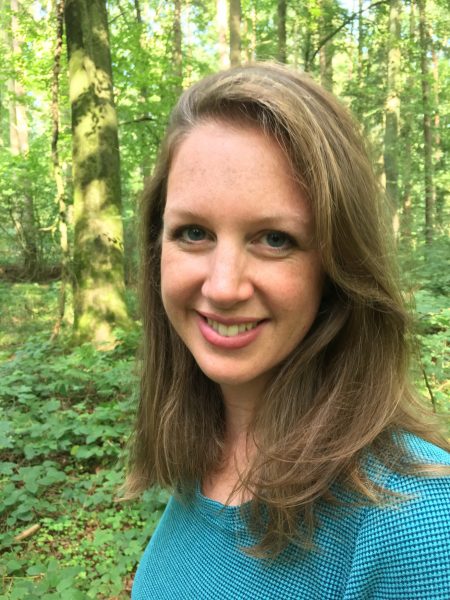KAMLOOPS – An incoming Thompson Rivers University (TRU) faculty member has been granted a Canadian Research Chair (CRC) in Fire Ecology. Dr. Jill Harvey will investigate how wildfires and drought impact forests in the BC Interior.
The Government of Canada CRC Chairs Program invests up to $295 million per year to attract and retain some of the world’s most accomplished and promising minds.

Dr. Jill Harvey
Harvey has also received nearly $75,000 in funding from the Canada Foundation for Innovation (CFI) that will support the development of the Fire and Forest Ecology Centre (FFEC). This centre is designed to advance research on the ecological effects of fire and climate change on montane forests. The FFEC will enable the collection and processing of new field-based datasets to support innovative research activities. The laboratory infrastructure at TRU will be crucial in training students and disseminating research results.
Harvey said a warmer and drier climate has made wildfires in British Columbia more common. Her research studies the dynamics of past wildfire events in the central part of the province to understand how drought impacts the recovery of forests following wildfires.
“Understanding the connections between wildfire, drought and forest responses is crucial to protect natural resources and determine how British Columbia landscapes may change in the future,” said Harvey.
“We are delighted to welcome Dr. Jill Harvey as our Canada Research Chair in Fire Ecology at TRU. Dr. Harvey’s research lab will be a regional catalyst, working across the fire and climate change research domains, expanding research partnerships with fire and tree-ring researchers in western Canada,” said TRU Research and Graduate Studies Associate Vice-President Will Garrett-Petts
“The lab will facilitate a dialogue between traditional and western scientific ways of knowing through consultation with Indigenous knowledge holders and communities, working together to address the challenges of climate change and wildfires,” he said.
The goal of Harvey’s research is to have better informed forest- and fire-management practices to improve the resilience of Canada’s forests. By using tree rings as well as forest and climate datasets, her research seeks to determine how often and severe wildfires were in the past, and to identify patterns of forest recovery after wildfires.
“I will examine historical wildfires, cultural legacies of Indigenous burning and how forests are recovering after recent wildfires. This research will provide important information to understand how forests and grasslands are changing over long periods of time,” said Harvey.
–30–
University Relations, Thompson Rivers University
Michele Young, Manager, Communications Content
University Relations, Thompson Rivers University
250-828-5361 | micyoung@tru.ca

